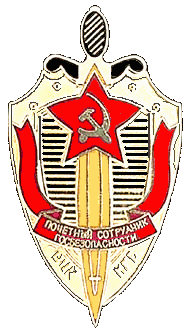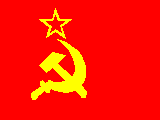 Active Measures
Active Measures
Active measures were clandestine operations designed to further Soviet foreign policy goals and to extend Soviet influence throughout the world. This type of activity had long been employed by the Soviet Union abroad, but it became more widespread and more effective in the late 1960s. Among these covert techniques was disinformation: leaking of false information and rumors to foreign media or planting forgeries in an attempt to deceive the public or the political elite in a given country or countries. The United States was the prime target of disinformation, in particular forgery operations, which were designed to damage foreign and defense policies of the United States in a variety of ways. Defectors reported that the Soviet Union and its allies circulated forged documents--often purporting to be speeches, letters, or policy statements by United States officials--containing false information. The use of international front (see Glossary) organizations and foreign communist parties to expand the Soviet Union's political influence and further its propaganda campaigns was another form of active measures. The World Peace Council was the largest and most important of Soviet front groups. Together with the International Department of the Central Committee, the KGB funneled money to these organizations and recruited Soviet agents to serve on their administrative bodies.
Other active measures involved support for terrorists and insurgents. As of 1989, there was no direct, public evidence that Soviet citizens had planned or orchestrated terrorist acts by groups from Western Europe or the Middle East, but there was much indirect evidence to show that the Soviet Union did support international terrorism. The Soviet Union maintained close relationships with a number of governments and organizations that were direct supporters of terrorist groups. The Soviet Union sold large quantities of arms to Libya and Syria, for example, and also maintained a close alliance with the Palestine Liberation Organization (PLO), providing it with arms, monetary assistance, and paramilitary training. Moscow's surrogate, Cuba, played a central role in Latin American terrorism by providing groups with training, arms, and sanctuary, and the Soviet Union's East European satellite states often served as middlemen or subcontractors for channeling aid to terrorist groups. Although the KGB, with some exceptions, avoided direct involvement with terrorist operations, it played an important role in diverting aid to these groups and providing the Soviet leadership with intelligence reports on their activities.
The KGB also was heavily involved in the support of "wars of national liberation" in the Third World. Together with satellite intelligence services, the KGB helped to organize military training and political indoctrination of leftist guerrillas, as well as providing arms and advisers. The manipulation of wars of national liberation enabled the Soviet Union to influence the political future of the countries in question and to make their new governments more responsive to Soviet objectives. The Soviet regime concentrated mainly on African countries until the late 1970s but then extended its support for "national liberation movements" to Central America, where it has regularly employed the services of Cuba.
The KGB relied heavily on the intelligence services of satellite countries in carrying out both active measures and espionage operations. The intelligence services of the German Democratic Republic (East Germany), Czechoslovakia, Poland, Hungary, Bulgaria, and Cuba formed important adjuncts to the KGB. Although formally subordinated to their own governments, these satellite intelligence services were, according to many Western experts, heavily influenced by the KGB. A former official in the Czechoslovak intelligence service stated that Soviet intelligence was informed about every major aspect of Czechoslovak intelligence activities, and Soviet advisers (called liaison officers) participated in planning major operations and assessing the results. As far back as the 1960s, the KGB introduced a new element of coordination with the satellite intelligence services through the creation of departments for disinformation in East German, Czechoslovak, and Hungarian intelligence services and the establishment of direct lines of communication from these departments to the KGB.
Soviet active measures involved not only KGB and satellite intelligence services but also several other Soviet agencies, which all participated in a coordinated effort to further Soviet policy objectives. In addition to the KGB, the Central Committee's International Department took a leading role in directing and implementing active measures.
Data as of May 1989
Sources and Methods
- Chapter 19. Internal Security, SOVIET UNION - A Country Study Library of Congress Federal Research Division - 1989



